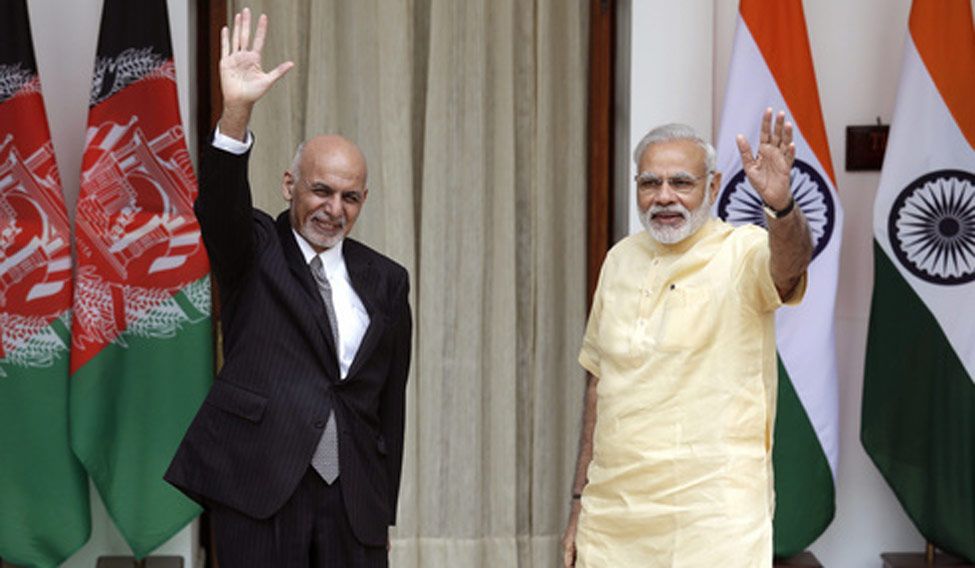Ghani Eyes Military Assistance From India As New Delhi Flexes 'Soft Power' Muscles

NEW DELHI: Afghan President Ashraf Ghani began his two day visit to India on Wednesday, with the itinerary including a meeting with Indian Prime Minister Narendra Modi.
India and Afghanistan issued a joint statement following the meeting, with terrorism and violence figuring prominently in the discussions. Both countries said that terror in the region presented the single biggest threat to peace, stability and progress, and reaffirmed their resolve to counter terrorism and strengthen security and defence cooperation. Further, India pledged to allocate a sum of $1 billion for Afghanistan’s capacity building prospects, in the areas of education, health, agriculture, skill development, strengthening of democratic institutions etc.
India has long sought to increase its influence in Afghanistan; this is corroborated by India’s soft power presence, as India’s development assistance programme for Afghanistan stands at $2 billion, making the country one of the leading donor nations in Afghanistan.
PM Modi has, in a short span of time, made two official visits to Afghanistan, inaugurating the $290-million Salma Dam during his last visit in June. The Salma Dam -- also known as the Afghan-Indian friendship dam -- is a 1700 crore infrastructure showpiece by India in Herat province.
Further, India’s soft power presence is in the form of investments in hospitals and institutional buildings (India built Afghanistan’s parliament), accords to train army and police officers, and other capacity building measures. It’s interest in the region is linked to Afghanistan emerging as an economic and energy link to Central Asia. The recent Chabahar Port deal signed between India, Iran and Afghanistan is indicative of the same.
There has been concern in India in recent years on the lack of space accorded to it as far as Afghanistan is concern, despite the country making clear that it has strategic interests in the country. Last year, India was left out as the US and China co-convened a high level meeting on Afghanistan’s peaceful development and regional cooperation.Months of efforts by both Pakistan and the U.S. to ease out differences and bring China on board finally bore fruit, with the first-of-its-kind meet being held on the sidelines of the United Nations General Assembly. In the chair were the Chief Executive of Afghanistan Abdullah Abdullah, U.S. Secretary of State John Kerry, Chinese Foreign Minister Wang Yi, and Afghan Foreign Minister Salahuddin Rabbani. Those who participated in the talks were ministers from Turkey, Saudi Arabia, Iran,Australia, Italy, Norway.Kazakhstan. Pakistan was represented by National Security Advisor Sartaj Aziz. There was no sign of India, clearly not even invited as a participant.
This changed for India this year, as US Secretary of State John Kerry announced that the United States would launch trilateral talks with India and Afghanistan. “We will restart the trilateral at the UNGA (UN General Assembly). Doing so is going to enable us to determine how best to build on the past gains of securing villages, empowering women, educating students and promoting good governance across Afghanistan,” Kerry said.
Indication that Afghanistan, and consequently the US, is willing to involve India, came earlier this month as Ghani reportedly threatened to block Islamabad’s trade access to Central Asian States if New Delhi was not made a partner in the transit trade pact. The developments, in turn, follow a dip in relations between Islamabad and Kabul, as the latter accuses the former of aiding and abetting terrorism across the border -- a charge that India shares common ground on.



